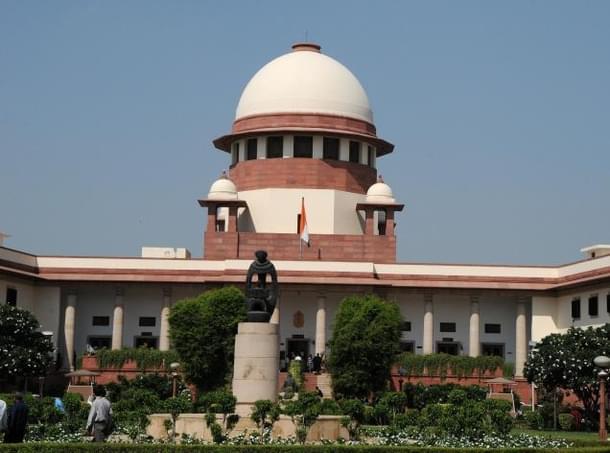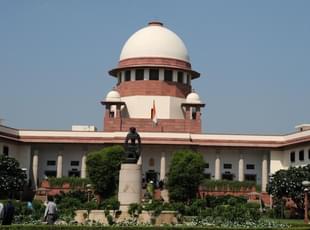Books
Triple Talaq, Sabarimala: Supreme Court Must Strike Balance Between Religious And Individual Rights
R Jagannathan
Mar 29, 2016, 11:54 AM | Updated 11:54 AM IST
Save & read from anywhere!
Bookmark stories for easy access on any device or the Swarajya app.


This is the right balance to strike between minority (and majority) religious rights and the individual’s right to equality under the constitution.
The Supreme Court is faced with a bunch of petitions that have huge implications for religious freedom as well as human rights, especially the rights of women. Most of the petitions involve a conflict between religious tradition and women’s right to equality and fair treatment under the law. That is why the court needs to strike a fine balance between two rights enshrined in the constitution - equality before the law (article 14), and the rights of minorities to set up and administer their own religious and cultural institutions (articles 25-30).
The three issues that will come up for a decision are the following: the constitutionality of triple talaq; the right of women to enter the sanctum sanctorum of the Haji Ali Dargah in Mumbai, and the right of menstruating women to do the same in Swami Ayyappa’s Sabarimala abode.
If the Supreme Court decides these cases on the basis of first principles, it is likely to strike the right balance between two conflicting rights. It has to ask these questions:
#1: Where does religious freedom begin or end, and when does an individual’s right to equality trump this right?
#2: To what extent does a religious institution has a right to its own traditional practices, and when is it permissible to allow some discrimination to preserve something that is age-old, and thus eligible to some slack on principles of equality?
#3: What matters should the court decide, and what should it leave to a community to decide through internal dialogue and consensus?
There are no short answers to these questions, but some approaches seem obvious to me. Triple talaq may be religiously sanctioned, but as it unfairly impacts the rights of women citizens, it is clearly not just about protecting the religious rights of minorities. Marriage and divorce impact a person’s life, and it is thus constitutionally just for courts to decide on this issue in favour of women.
When it comes to the other issue - the right of women to equal status within a religious place - the arguments are more difficult to resolve.
If Sabarimala is about a celibate God and giving priority to male-bonding in worship, it is not a tradition that should be easily discarded. It’s like setting up a gym or club specifically for one gender, with limited rights for the other. The same logic could apply to women claiming equality in Haji Ali. Here again, even if tradition gives men some extra preference, it cannot be said to be hugely discriminatory.
Reason: a specific practice in a specific temple or dargah or mosque cannot be said to be totally unfair if it is not the general practice everywhere. What should be called out is consistent discriminatory practices across temples or mosques, not the oddball institution with has an idiosyncratic tradition.
Does this mean women should like it or lump it when it comes to such practices which they find unfair?
No, not really. The only point being made here is that the courts should not meddle in isolated practices of differential treatment. Women can, and should demand equality by engaging with the temple or dargah authorities, and - in due course - they are sure to win. Most age-old practices have been changed by the pressures of modernity and the possible loss of women’s patronage of places of worship.
On the question of triple talaq, a practice that is clearly loaded against women, the Supreme Court is right to inject itself into the debate and give a decision, just as it did in the case of Shah Bano case in the late 1980s
Even here, it is not the religious law that is being breached by secular law. Any woman who wants to accept triple talaq voluntarily is free to do so. But, equally, any woman who feels wronged by triple talaq can seek the protection of secular laws. It is her right under the constitution.
The way to a uniform civil code can be achieved in two ways: one is by enacting a law; the other is by the courts deciding that whenever anyone seeks the protections assured under the constitution, they will get it. The constitution will trump personal law whenever individual rights are seriously threatened.
This is the right balance to strike between minority (and majority) religious rights and the individual’s right to equality under the constitution.
Jagannathan is former Editorial Director, Swarajya. He tweets at @TheJaggi.





